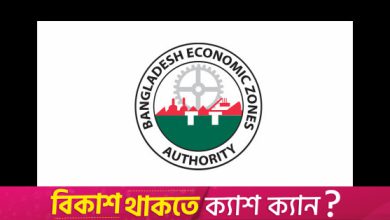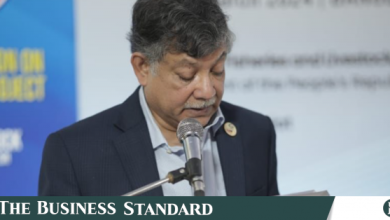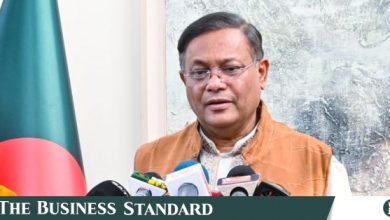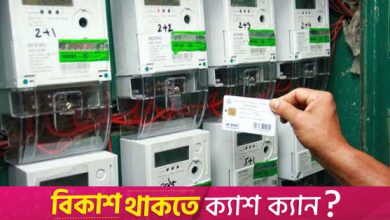Recognising women’s role key for an inclusive fisheries sector
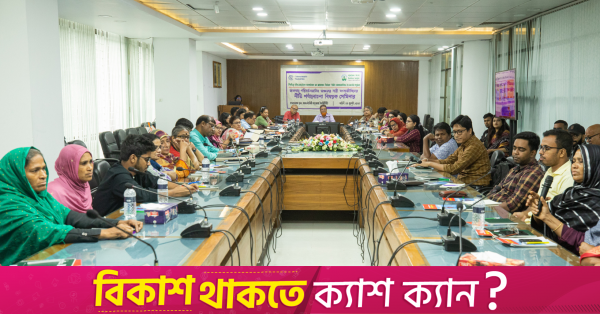

Photo: Rajib Dhar
“>
Photo: Rajib Dhar
Comparing to male, women’s participation in direct fishing in the sea or river is low, they play a significant role in the subsequent stages. However, women in coastal areas are depending on fishing in the cannel, open water-bodies, river etc. The recognition given to men is not equally extended to women. As a result, 96% of cardholder fisherfolk are men, while only 4% are women.
Despite this disparity, women spend a large part of their day cutting, sorting, and processing fish. It is essential to acknowledge and recognise the contributions of women involved in fish harvesting and processing.
These views were presented at a seminar titled “Policy Review for Fisherfolk in Climate Change Zones,” jointly organised by the Department of Fisheries and Badabon Sangho at the International Mother Language Institute in Segunbagicha, Dhaka.
The Business Standard was the media partner of the event, which was moderated by communication specialist and columnist Shahana Huda.
Stakeholders from both the government and private sectors discussed the current government policy and its potential reforms concerning the socio-economic development of men and women involved in the country’s fishery sector.
Md Zillur Rahman
Additional Director General (current charge), Department of Fisheries
Photo: Rajib Dhar
“>
Photo: Rajib Dhar
Fisherfolk are defined as men or women involved in catching, transporting, and marketing fish from natural water bodies, earning their living through this work. As such, we issue fisherfolk cards to them. Those involved in fish processing or marketing, but not directly catching fish, are called fishers. Individuals directly involved in fish production are called fish farmers.
The three main functions of the Department of Fisheries are to meet the demand for animal protein, earn foreign exchange, and create employment. Emphasis is being placed on women’s empowerment, and we are advocating for women’s rights at all levels. Gradually, we are progressing towards ensuring the empowerment of women.
Due to natural reasons, women often lag behind in physical work and may find it challenging to stay away from home for 7-10 days. Therefore, they should be included in activities that require relatively less physical effort, such as fish processing.
Sustainable fish production should be emphasised, along with mechanisation. We don’t want fisherfolk’s family members to be limited to fishing alone; they can pursue other professions. Fishing in the sea is closed for 65 days, during which VGF rice is provided to fisherfolk. There is some discrepancy with the dates, as fishing in the seas in India is closed from 15 April to 14 June, while ours is from 20 May to 23 July. Discussions are underway at the international level to synchronise the closure periods for both countries.
Annually, we earn around Tk 5,000 crore in foreign currency from the fisheries sector. By 2041, we aim to increase this to Tk 15,000 crore.
Lipi Rahman
Executive Director, Badabon Sangho
Photo: Rajib Dhar
“>
Photo: Rajib Dhar
The Fisherfolk’s Identity Card Guidelines 2019 were revised in September 2020. Section 3.0 states that a fisherman is defined as an individual holding an identity card issued by the Department of Fisheries who earns their livelihood by harvesting fish professionally using nets, other equipment, or boats or vessels throughout the year or at certain times of the year in any water body within the geographical boundaries of Bangladesh. According to these guidelines, there is no scope for discrimination between men and women in obtaining identity cards from the Department of Fisheries.
However, due to various social and family barriers, many women cannot access government-issued identity cards and the associated benefits, leaving them deprived of various opportunities. Approximately 1.85% of Bangladesh’s population is directly or indirectly involved in the fisheries sector, with nearly half of this population being female. On behalf of Badabon Sangho, we are grateful to the government for the development of the fisheries sector and the professional skill development of fisherfolk, as many opportunities are being provided to them.
The Department of Fisheries has taken steps to determine accurate statistics of fisherfolk. Since January 2012, efforts to register and update identity cards have been ongoing, resulting in the issuance of identity cards to 1.62 million fisherfolk across the country by June 2012. According to the Directorate of Fisheries, women fisherfolk from seven districts—Sylhet, Rangpur, Rajshahi, Khulna, Dhaka, Chattogram, and Barishal—have been registered.
Section 2A of the Jolmohal Policy defines bona fide fisherfolk as those who earn their living primarily by catching and selling fish from natural sources. However, women working in haor, baor, and small fish harvesting centers are often not considered fisherfolk, despite the fact that they perform most of the harvesting and sorting work, spending 12-14 hours a day on these tasks.
In this context, the Jolmohal policy can be beneficial for women fisherfolk. Although the government has issued cards to women fisherfolk, this process is sometimes hindered by societal attitudes. The prevailing perception that fisheries work is primarily a male domain prevents women from receiving proper recognition, thereby obstructing their access to identity cards.
Badabon Sangho is actively working on the rights of marginalized women fisherfolk, investigating the causes of their deprivation and discrimination, and exploring potential solutions. To highlight these issues, we interviewed 300 women fisherfolk in coastal areas. We hope that the Department of Fisheries will take steps to address the issues identified in our research.
Fariha Jesmin
Senior Programme Officer, Badabon Sangho
(keynote speaker)
Photo: Rajib Dhar
“>
Photo: Rajib Dhar
The government formulated the National Fisheries Policy in 1998 with the objectives of increasing production, reducing poverty, meeting consumer demand for animal protein, and maintaining ecological balance. According to a 2022 report, Bangladesh ranks 3rd in the world for freshwater fish production. Fisherfolk live in coastal areas, haor-baors, and riverside chars, with a significant proportion being women who earn income for themselves and their families
by catching fish.
In many cases, women are not directly considered fisherfolk due to their focus on haor, baor, and other small water bodies. However, it is evident that most women in these areas are involved in harvesting and sorting fish. For these women, the Jolmohal policy is particularly beneficial. To implement this government directive, women fisherfolk are being registered and issued identity cards, an ongoing process aimed at recognizing their contributions and providing them with necessary support.
As women fisherfolk contribute significantly to the income of the fisheries sector, they often face various mental and physical barriers. In the coastal districts of Patuakhali (Kuakata), Bagerhat (Mongla), and Cox’s Bazar Sadar, approximately 150 men and women earn their living by fishing, as administered by Badabon Sangho. Almost 100% of women face harassment from the loan sharks. Additionally, women fisherfolk suffer from various skin diseases due to prolonged exposure (8-12 hours) to saltwater.
Common health issues include headaches, saltwater intoxication, darkening of the skin, skin whitening, and uterine infections. Saltwater exposure also causes white, fungus-like skin conditions on the soles of the feet and other parts of the body.
Data reveals that only 4% of cardholders are female, while 96% are male. Approximately 93% of female fisherfolk suffer from medical issues and do not receive any specialized healthcare. Around 40% of these women are widows or sole breadwinners, and 25% are involved in social welfare programs. Alarmingly, 100% of these women rely on loans from loan sharks. Only 2% of women have availed themselves of various schemes in the past year. Additionally, around 98% of both female and male fisherfolk are associated with some NGO.
Many women who have not received cards are unaware of the application process, hindering their ability to apply for and obtain these cards.
Recommendations
The term “fisherfolk” should be made gender-neutral to include both male and female individuals engaged in fishing activities. It is evident that many women fisherfolk do not receive identity cards and face various forms of social discrimination. Clarifying the legal status of fisherfolk under the Bangladesh Labour Act-2006 and Guidelines for Registration and Issuance of Identity Card of Fisherfolk, 2019 could provide proper assistance to them as workers.
Several initiatives are necessary to ensure that government officials at the grassroots level are informed about the registration process for fisherfolk. Awareness campaigns should emphasize registering cooperative societies that include women fisherfolk.
In some regions, women are not directly involved in fishing and selling at sea, but they are extensively involved in harvesting and sorting fish. In such cases, consideration should be given to whether harvesting and sorting activities can be categorized as occupations under the term “fisherfolk.”
It is crucial to prioritize ongoing projects of the Department of Fisheries in coastal areas to address the health and safety risks faced by women fisherfolk.
Masuda Khanam
Chief Scientific Officer (Fisheries Planning and Survey), Directorate of Fisheries
Photo: Rajib Dhar
“>
Photo: Rajib Dhar
It’s encouraging to see efforts directed towards supporting women involved in fisheries. Educating and raising awareness among women, especially mothers, is crucial as it ultimately contributes to the education of the entire nation. If a woman herself suffers from malnutrition and lacks access to nutritious food, she will struggle to provide her child with adequate nutrition or play an effective role in nation-building.
During my recent visit to Shyamnagar in Satkhira, I observed ongoing initiatives aimed at training and integrating coastal women into fisheries through various projects. These programmes include training women on pond management to sustainably feed their families.
Typically, women operate behind the scenes, even if they are the ones producing goods. It’s usually men who take these products to market and handle sales, thus receiving the income. I believe women should also participate in market activities and consider online selling platforms to directly earn income. Every woman should strive for financial independence.
